AARP Hearing Center


Twenty-one
Duncan
HE WATCHED HIS fingers playing “I Heard It Through the Grapevine” and tried to ignore the telephone directories, neatly stacked on the lowest shelf of the bookcase across the room. She wouldn’t be in them, they were for Oxfordshire, but the three fat books, last year’s, this year’s, and the yellow pages, seemed to hum the question: Should he? Shouldn’t he? In the swimming pool he had realized with a twinge of shame that the decision, for now, was moot; he did not know his first mother’s name. His mother had told it to him only once, when he was three or four, not old enough to hang on to the strange syllables.
Mid-chord he stood up, went over to the bookcase, and pulled out the residential phone book for 1999. Column after column of names met his gaze. He turned to the Ls, and there, halfway down the first column, they were: Lang, Hal and Betsy. Then he looked up Will; his father Henderson, Brian was near the bottom. On the next page was Humphreys, Eleanor. Almost everyone he knew was included in these busy columns. He was searching for Mr. Griffin when he heard a soft thump at the door. Lily stepped into the room, circled the table, and stopped beside him. Bending to stroke her, he recalled Zoe’s suggestion.
“Would it be okay if I painted your portrait? For Gordon.”
This was a fine idea, Lily indicated, much better than moping over phone books.
In his bedroom she jumped onto the window seat and offered him a three-quarters view: black dog as figurehead. Duncan remembered his last disastrous attempt to draw her, when she had fidgeted her way off the page. Today Lily sat motionless while he pondered various decisions. Should she be at the center of the canvas? Should he include her surroundings, or any aspect of her life: black dog with red rose and glove? Then there was the challenge of her short, glossy fur, how to paint her so that she was both light and dark. He was drawing her ears when Matthew put his head round the door.
“Supper’s ready,” he said. “Nice picture.”
Stepping back from his easel, Duncan decided to seize the moment. “There’s something I need to tell you.” While Matthew lingered in the doorway, he repeated what he had told Zoe, about his first mother appearing in the garden, his dreams of the beautiful room. “I want to look for her. Mum says I have to ask you and Zoe.”
Matthew was pushing his hands through his hair, over and over, as if trying to push away Duncan’s words. “But you’re my brother. I can’t imagine—”
“Suppertime,” called Zoe from the kitchen.
At the table, his parents asked about his day. It had been quite ordinary—Mr. Griffin had shown them portraits by a painter named Lucien Freud; Will had a new calculator—but they kept saying “Well done” and “Great.” Zoe didn’t interrupt. Matthew didn’t tease him. As his father said “Great” for the third time, Duncan understood: they were all afraid. Don’t worry, he wanted to say. I’m just the same. But that wasn’t entirely true.
He woke to find himself struggling with the French doors into the garden; beneath his bare feet the flagstone floor was frigid. Where was he trying to go on such a cold night? Gradually, in the almost darkness, the familiar room assembled: the fireplace, the sofa, the television, the armchairs and lamps and tables. He sat down in one of the armchairs and tried to sidle back into the dream. Once again, all the doors were closed.
He must perform three tasks.
1. Find out his first mother’s name.
2. Finish Lily’s portrait.
3. Meet with Karel.
Then he would know what to do.
Twenty-two
Zoe
YOU CAN TALK to Mum, Duncan had said, but the person she wanted to talk to was the American. She imagined them walking along the Oxford canal, or sitting in a café. He would listen, and then he would say something that made her stop worrying about her father’s affair, Duncan’s desire to find his first mother, Matthew’s mysterious activities. Maybe afterward he would let her come back to his room. She pictured a narrow bed and a large desk. She wouldn’t take off a single piece of clothing, not even her jacket, not even her shoes.
When she got home from the butcher’s, her mother was on the phone, frowning slightly. Zoe guessed she was talking to her sister. She mouthed “Oxford,” and her mother, covering the phone, said, “I think your father’s going. Be home for supper.”


























































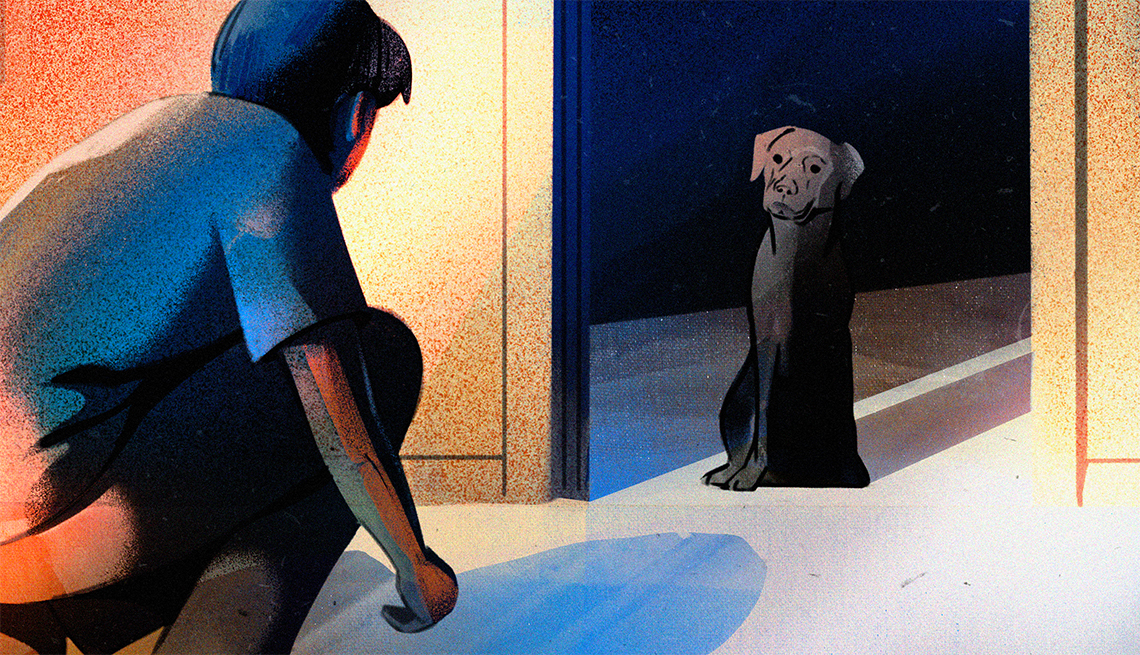
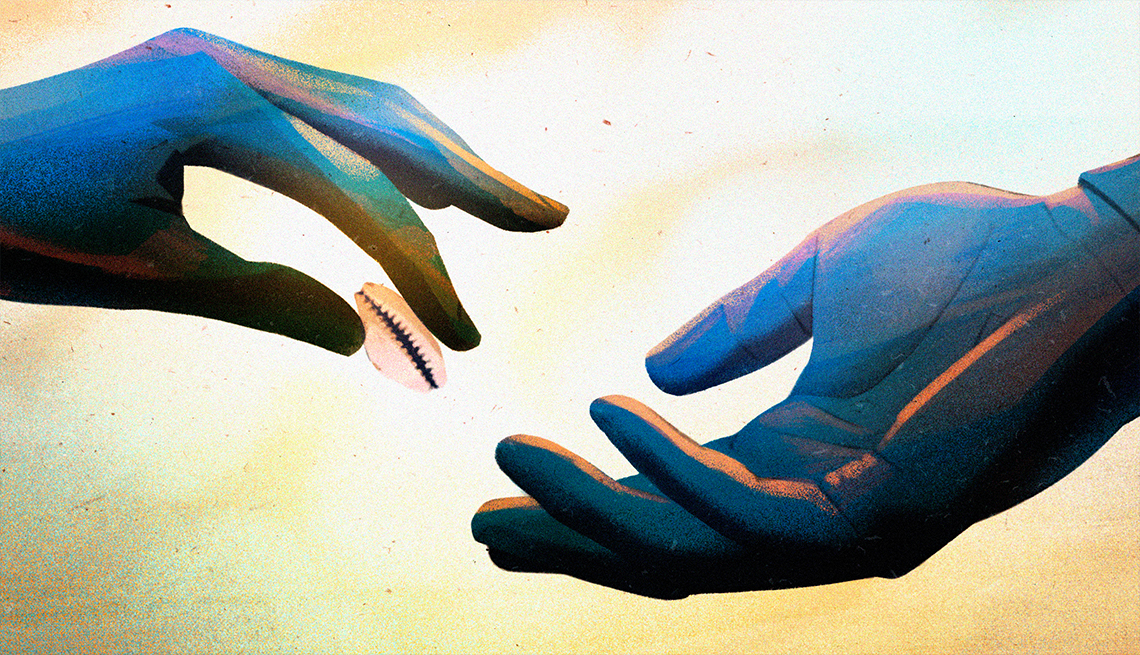
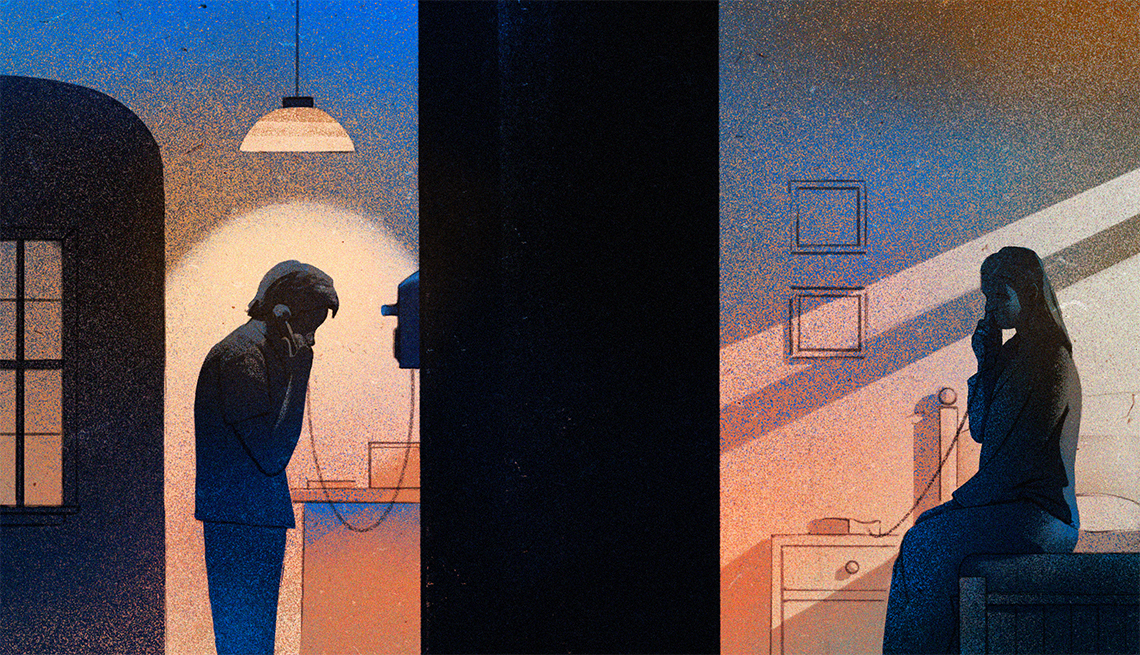


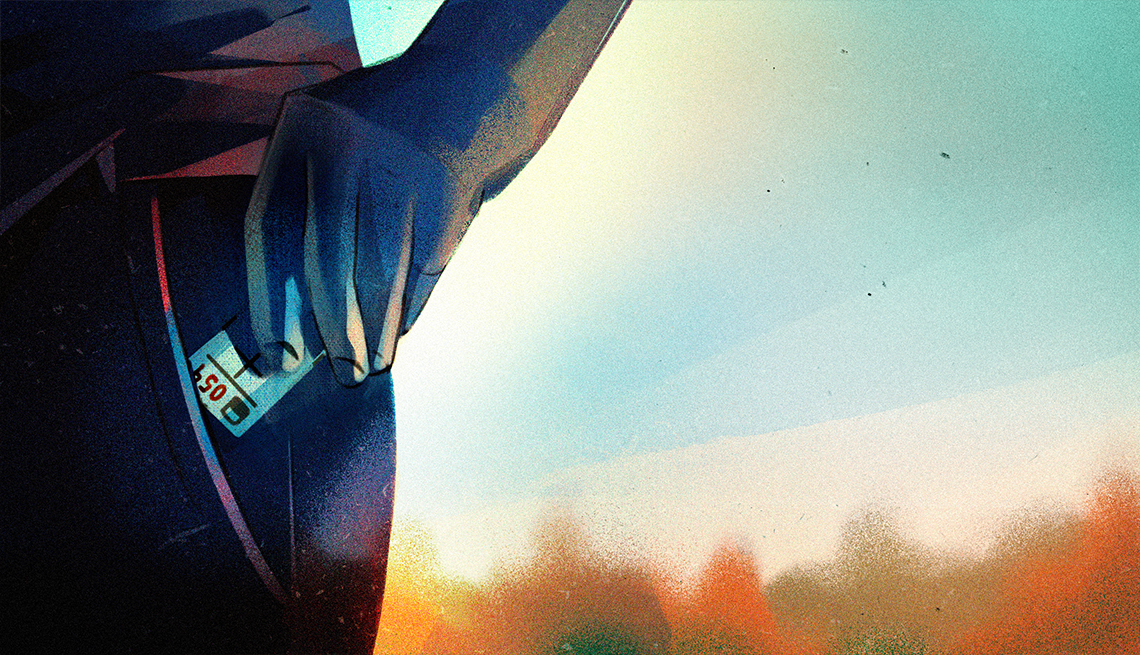

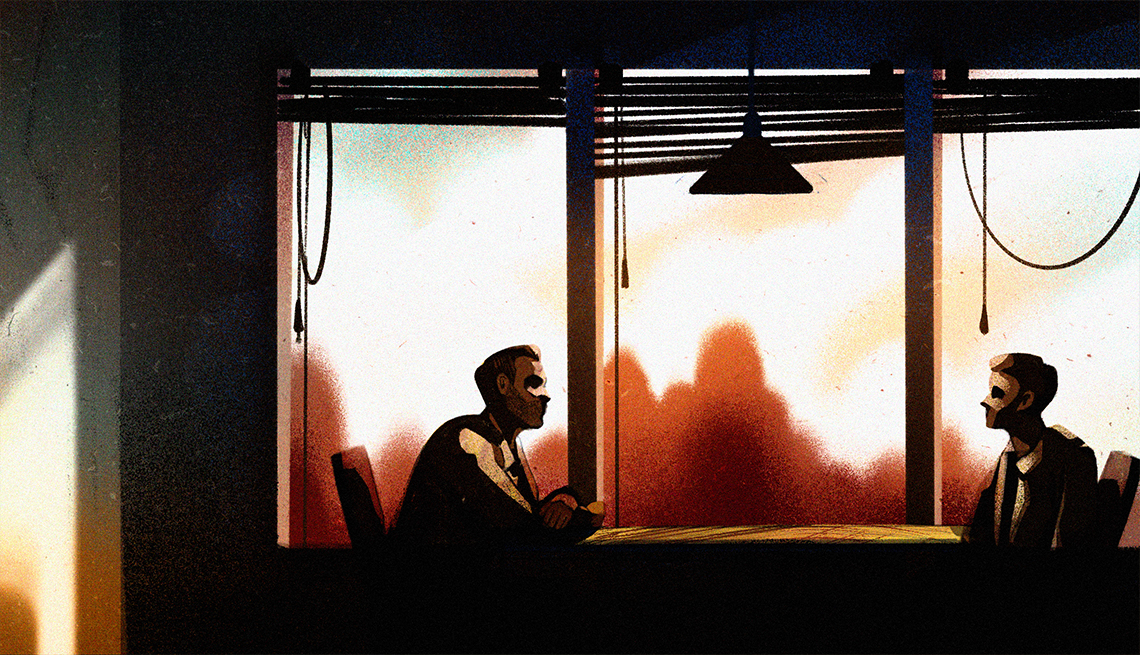
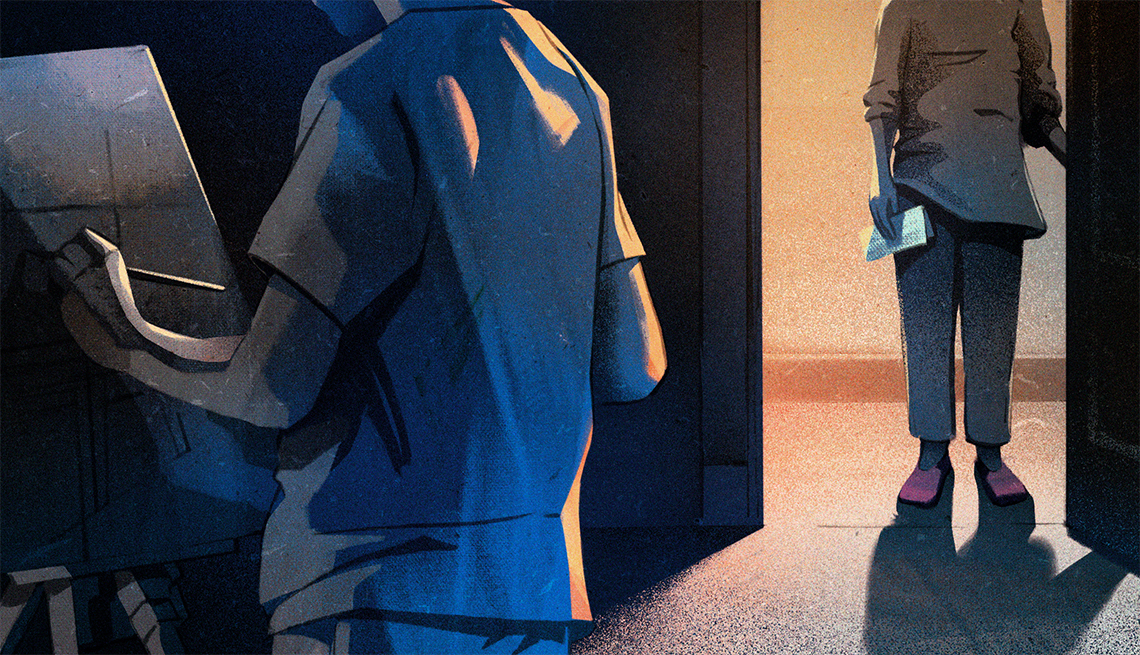
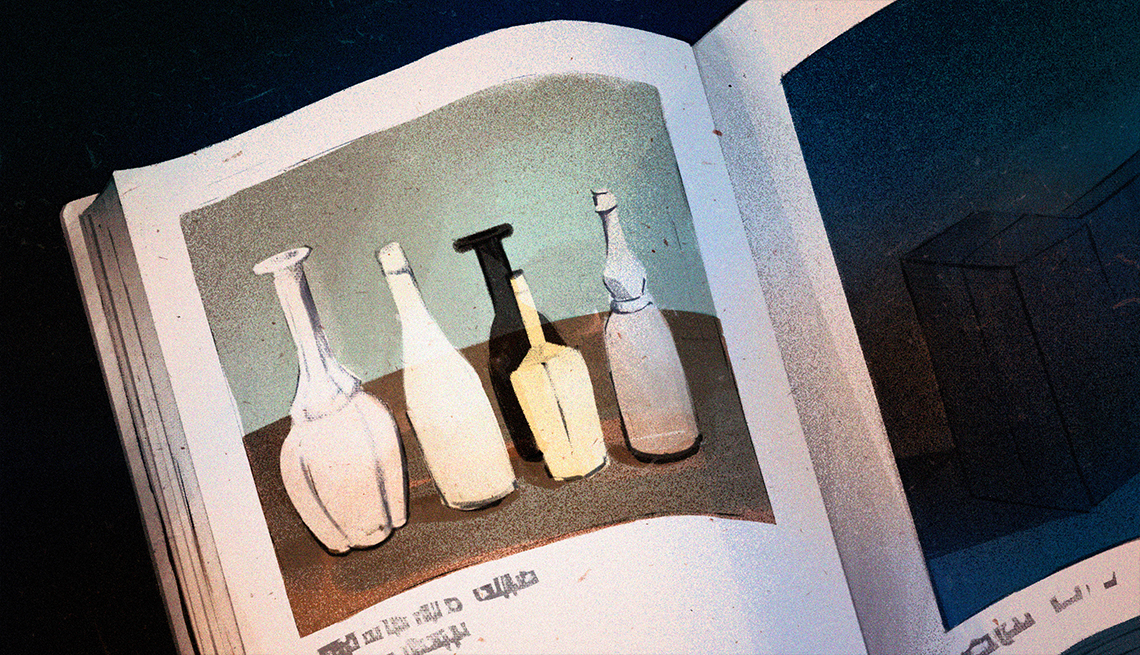
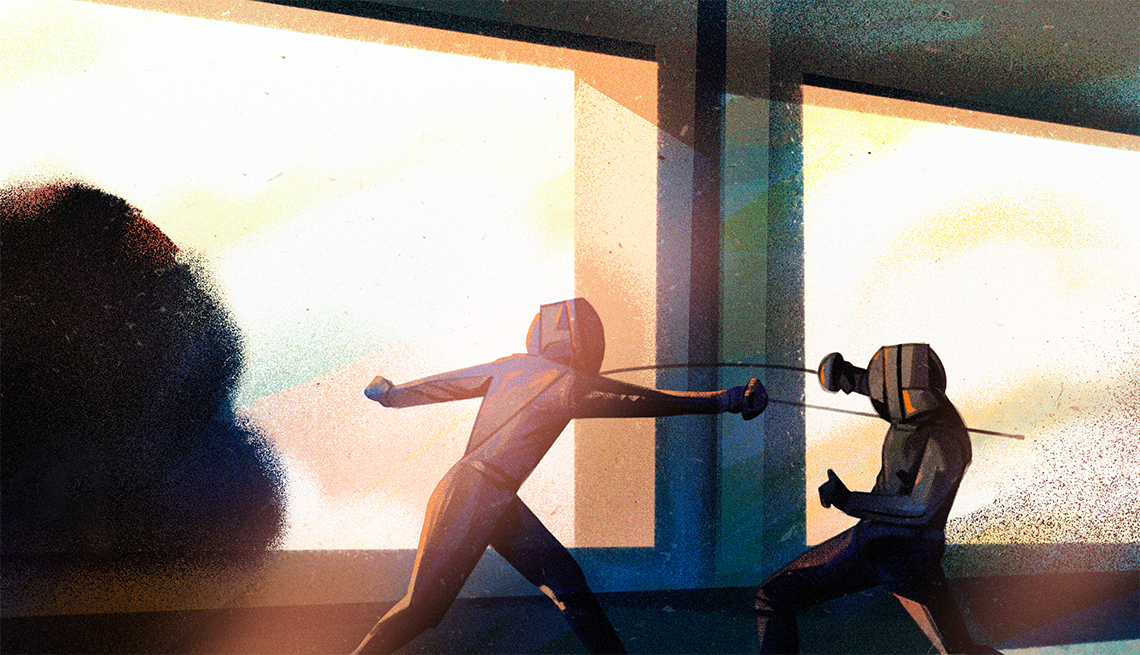
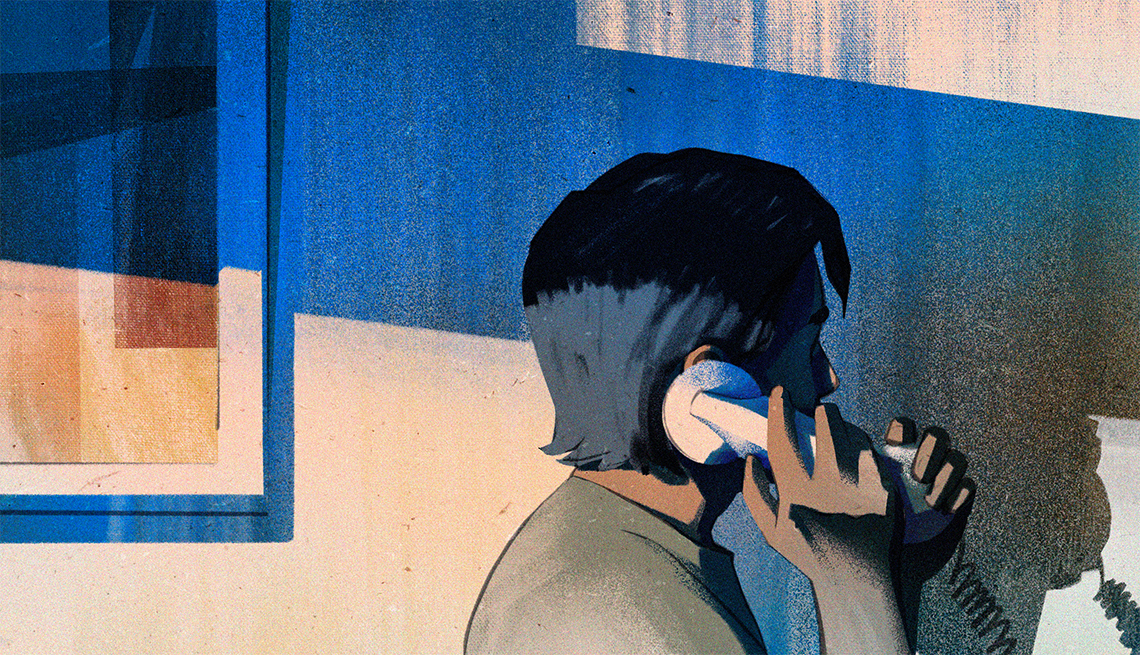
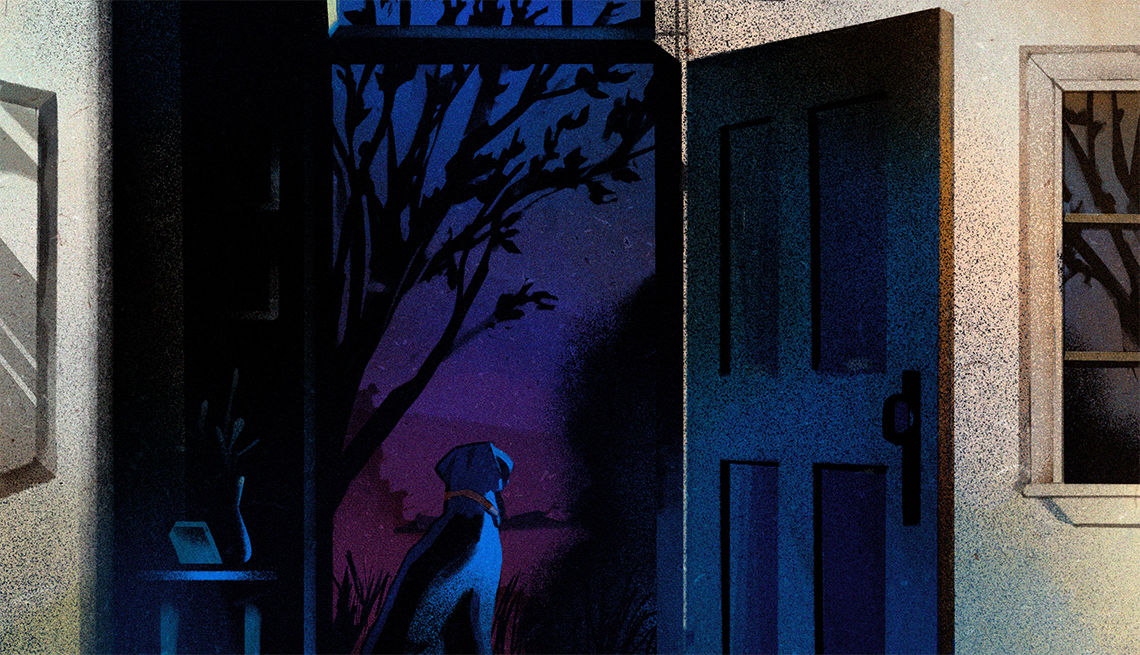

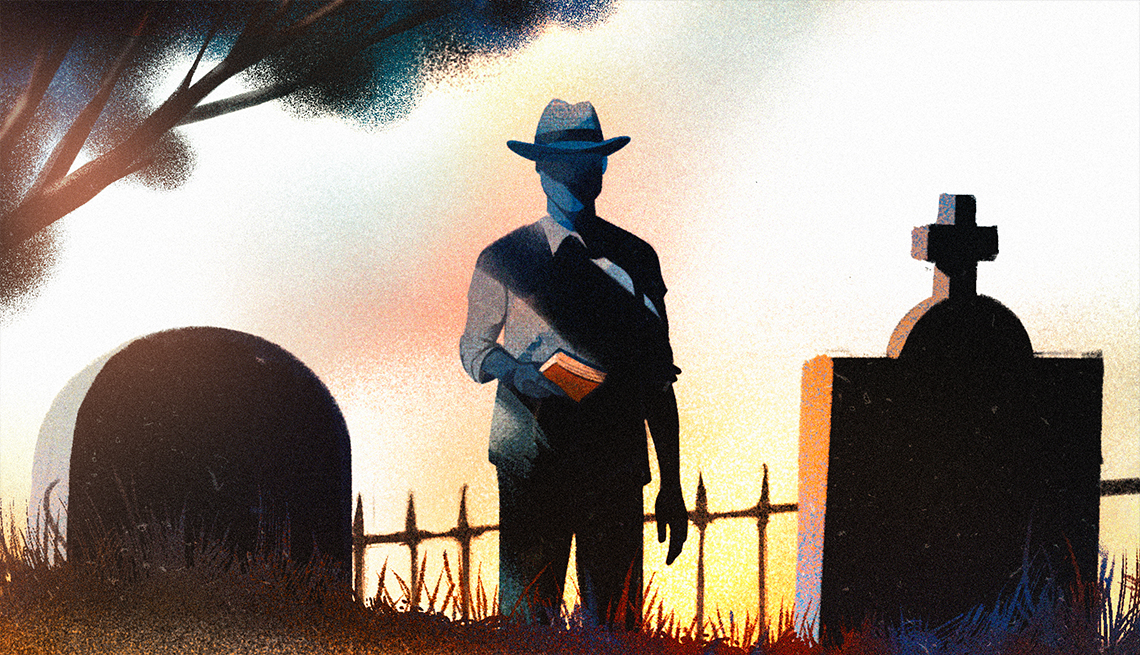

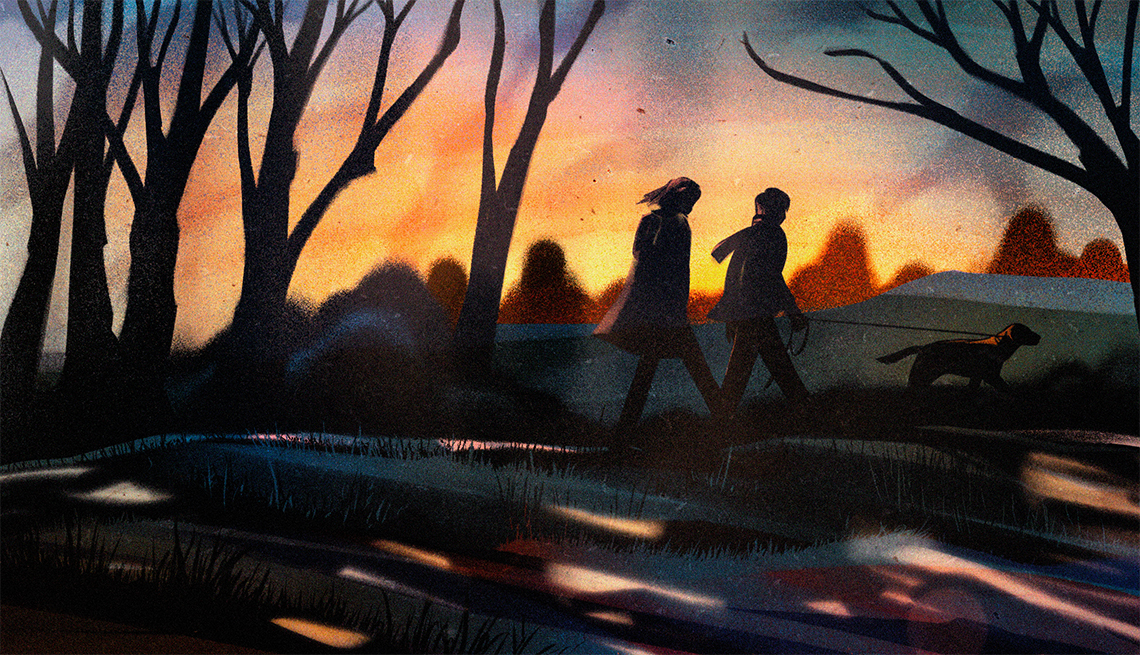
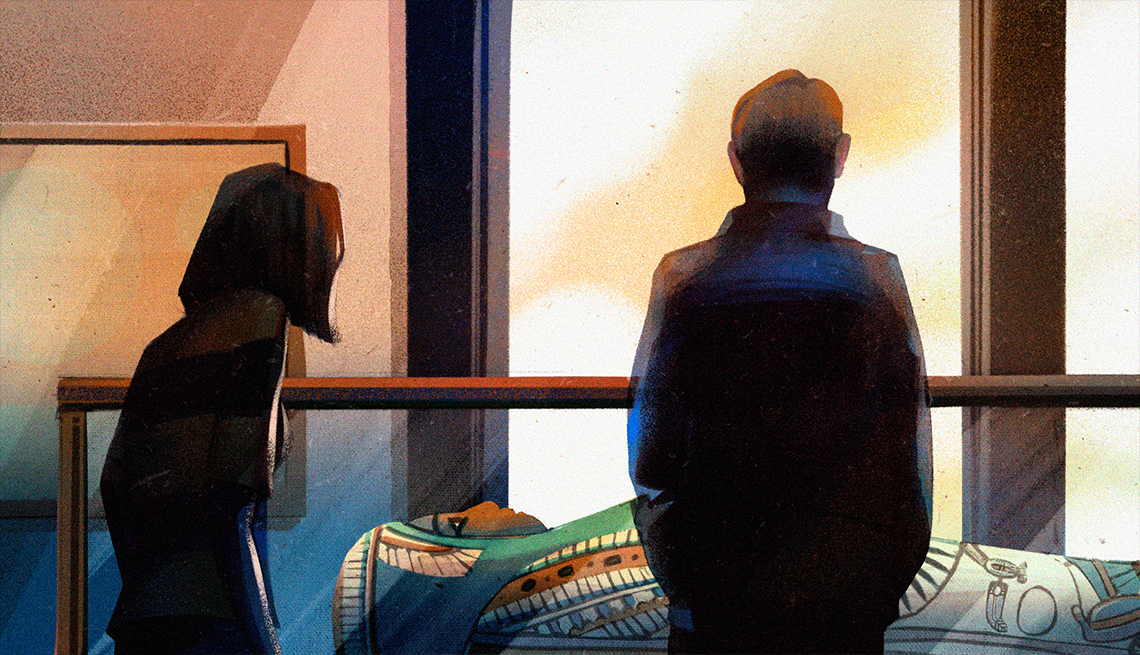
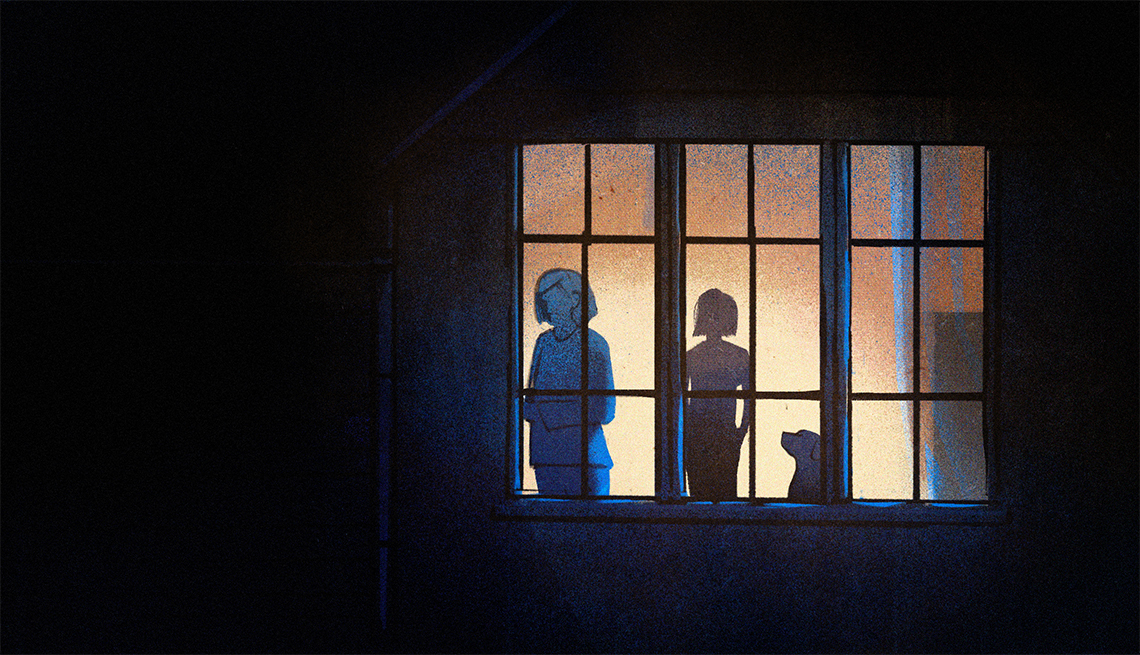
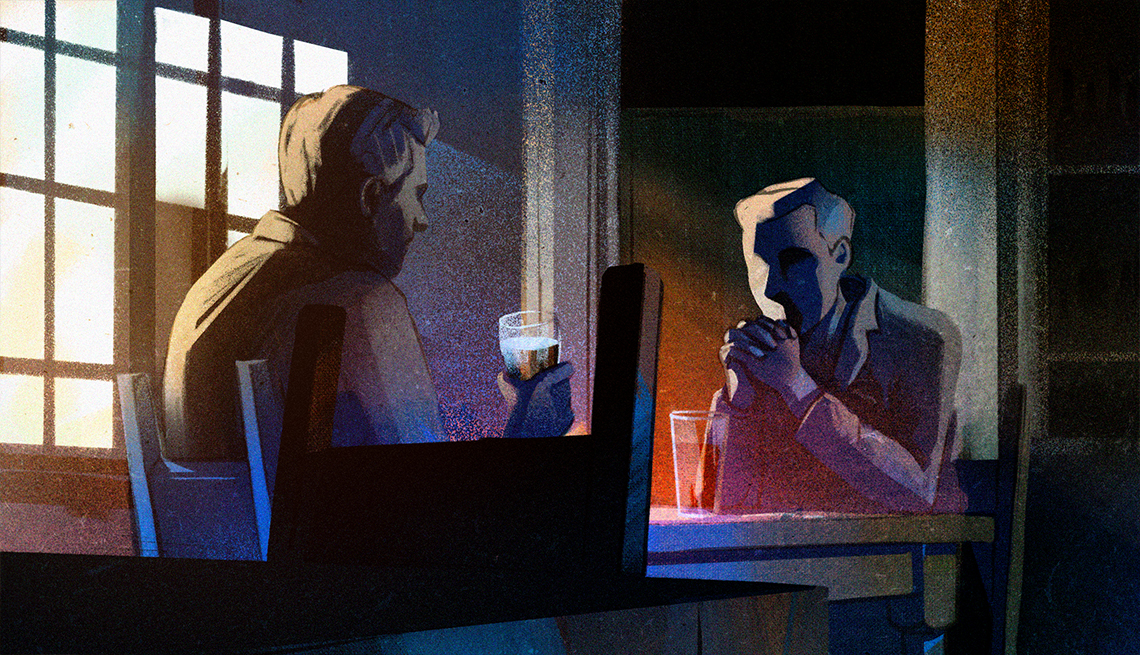



More From AARP
Free Books Online for Your Reading Pleasure
Gripping mysteries and other novels by popular authors available in their entirety for AARP members